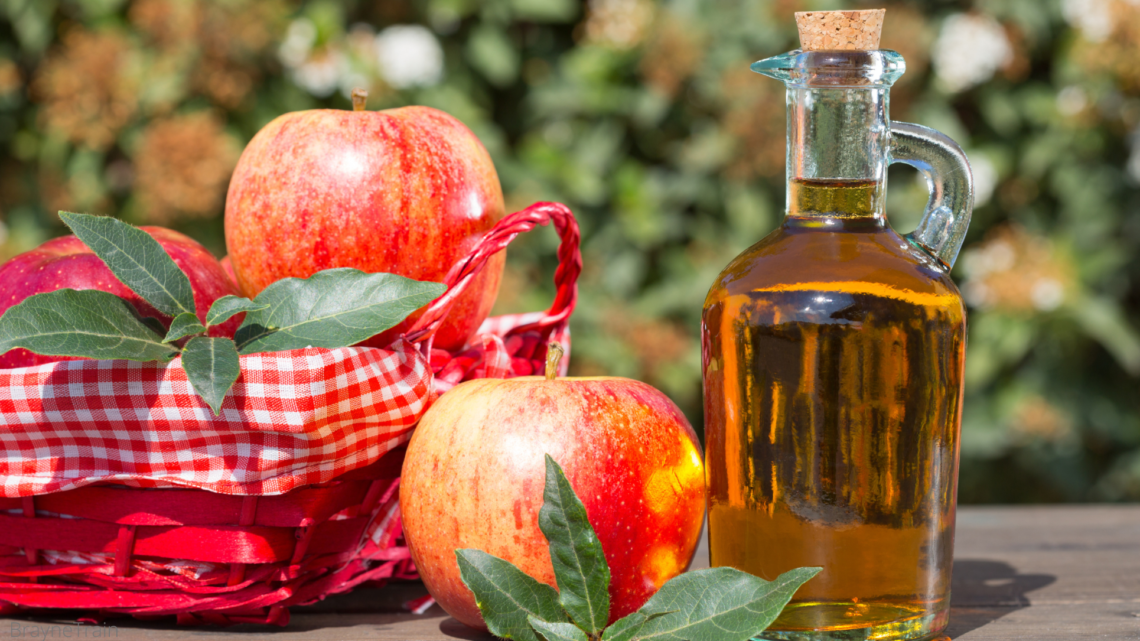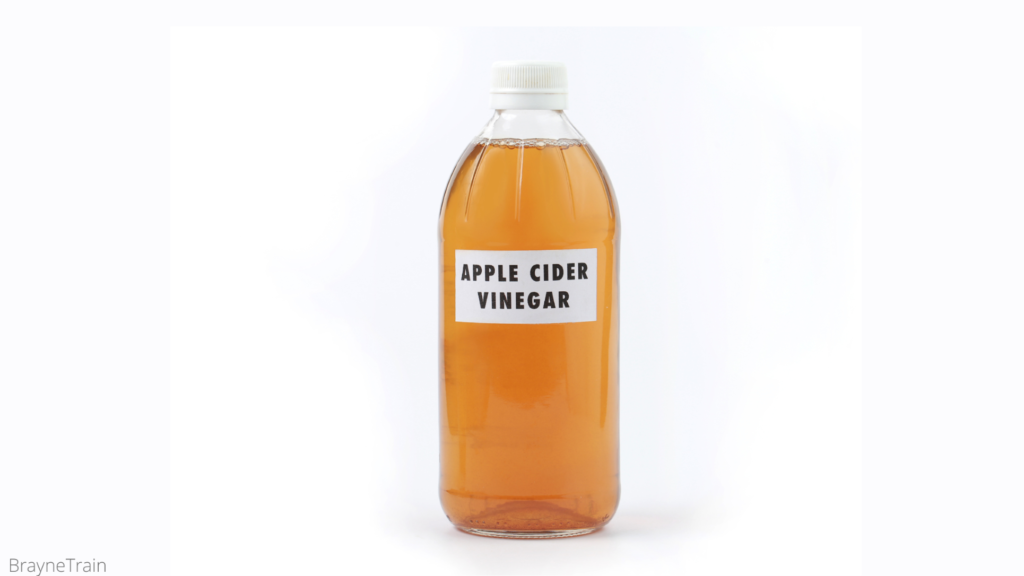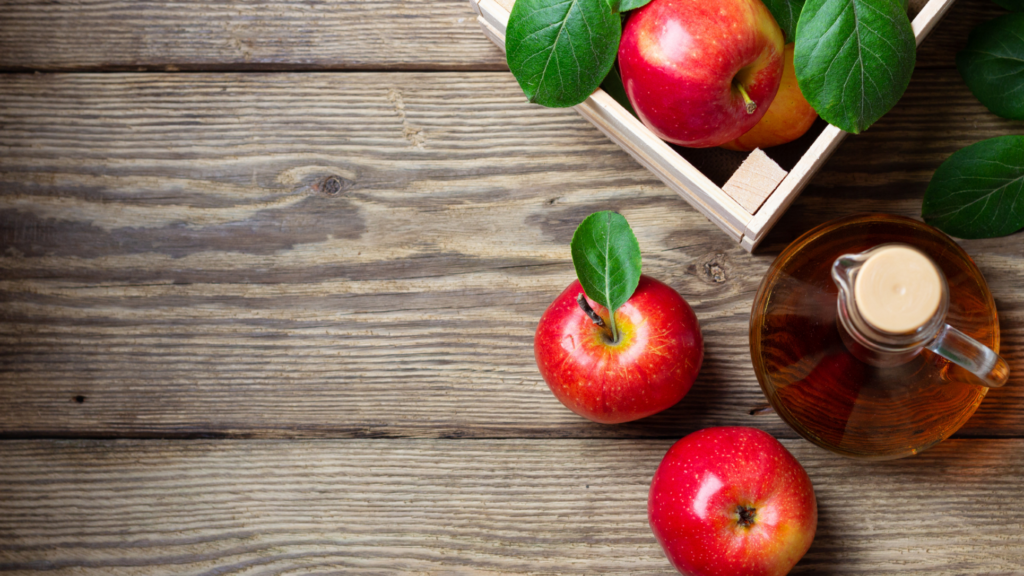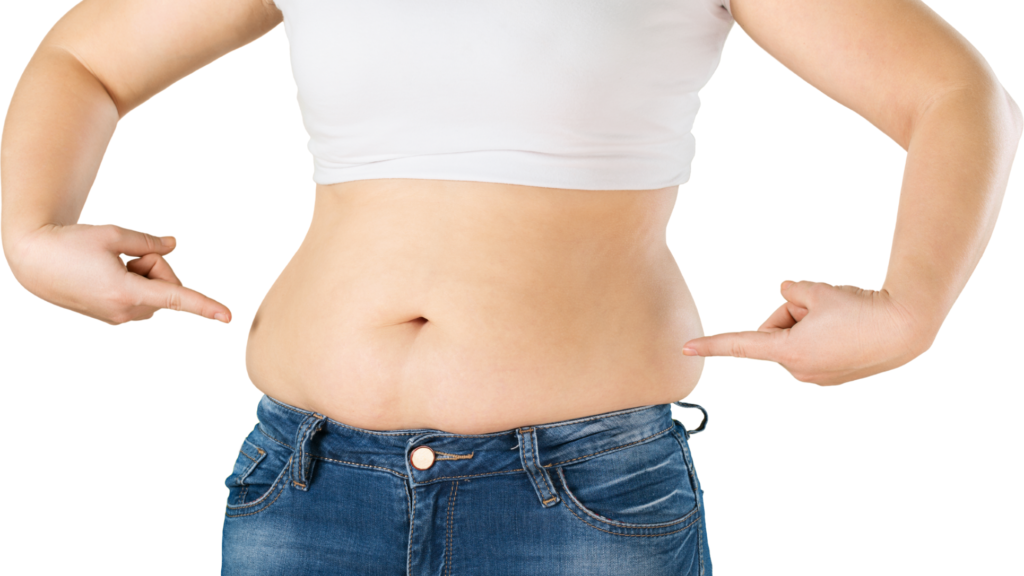
Can you Have Apple Cider Vinegar While Water Fasting?
According to many nutrition experts, there are some drinks you can consume while water fasting and intermittent fasting.
As a general rule, you can drink apple cider vinegar while water fasting because ACV does not break your fast. In fact, apple cider vinegar can help enhance your fasting experience and give you better results.
Apple cider vinegar has 1-2 calories, but it’s not enough to break your fast, and its benefits do outweigh the calories.
Many people find that drinking ACV helps them feel less hungry and more energized while fasting, allowing them to fast for a longer time.
In this blog, we have listed all the benefits of having apple cider vinegar during a water fast, so continue reading to find out more!
To find out more about Intermittent Fasting click here.

Benefits of Apple Cider Vinegar During a Fast:
Promotes Fat-loss
Apple cider vinegar has been used for weight loss for many years, and recent research has shown that it does in fact promote fat loss.
The Journal of Agriculture and Food Chemistry published a study that found Acetic Acid in a fasted state activates a receptor protein called PPAR-ALPHA, which allows the body to turn white fat into brown, and brown fat can be burned off as heat.
A study published in The Journal of Functional Foods found that vinegar activates an enzyme that helps regulate metabolism and increases fatty acid oxidation.
The study participants who consumed vinegar also had lower levels of fasting blood sugar and insulin, both of which are signs of metabolic health.
Lowers Hunger and Cravings
Apple cider vinegar contains acetic acid, which helps trigger satiety, increases fullness, and lowers hunger. All of which help improve the fasting result.
A study showed those who took apple cider vinegar before a meal felt fuller and ate less than those who didn’t.
Another study found that people who took apple cider vinegar before a high-carb meal had a lower blood sugar response after.
This is because vinegar slows down the digestion of carbs, which prevents blood sugar spikes, therefore, lowering hunger.

Improves Insulin Resistance
Apple cider vinegar has been shown to help people with insulin resistance.
In one study, everyone who drank vinegar had lower blood sugar after a meal. ACV helps your body use insulin better, making your body more sensitive to insulin and fixing insulin resistance as a result.
If you have insulin resistance and want to learn how to get rid of it click here and find out!
Lowers Blood Sugar
Acetic Acid lowers glucose transporters in blood, therefore decreasing blood sugar.
The Acetic acid in apple cider vinegar has been shown to lower blood sugar levels in people with diabetes.
In one study, participants with type 2 diabetes who took two tablespoons of apple cider vinegar before bedtime for 12 weeks, had lower fasting blood sugar levels in the morning than those who did not.
Another study found that taking 1-2 tablespoons of vinegar with a meal lowered blood sugar levels by up to 34% in people with type 2 diabetes.
Vinegar also increases your body’s sensitivity to insulin, which is the hormone that helps regulate blood sugar levels.

Reduces Belly Fat
Apple cider vinegar is effective for getting rid of belly fat.
Acetic acid lowers insulin resistance and helps absorb many minerals and proteins.
Having ACV can indirectly help you lose belly fat by improving your body’s insulin sensitivity.
In addition, vinegar also helps to reduce water retention and bloating, two common issues that can lead to a larger waistline.
Helps Prevent Kidney stones.
Fasting could cause kidney stones in certain individuals.
One of the lesser-known benefits of apple cider vinegar is its ability to prevent kidney stones. Kidney stones are small deposits of minerals that can form in the kidneys.
They are usually harmless but can cause pain and even block urine flow.
Apple cider vinegar contains citric acid, which helps break down kidney stones and make it easier to pass.
Ketosis
Having Apple Cider Vinegar while water fasting will put you deeper into ketosis and your fasted state.
ACV increases short-chain fatty acids, which supports ketone production.
The acetic acid in ACV helps inhibit the enzyme that breaks down ketone bodies. In other words, it helps keep your body in a state of fat-burning for longer.
A study published In The Journal of Molecular and Cellular Biochemistry found that ACV has the same effect on the body as Ketones do.
Bottom Line
Apple cider vinegar has been shown to provide a variety of health benefits and enhance the result of water fasting and improve your level of ketosis. Having 1 or 2 tbsp of ACV with 8 to 16 oz of water will give you the best results. Have you tried apple cider vinegar during your fast? give it a try and let us know how it goes! Thank you for reading!
References
Brighenti F, Castellani G, Benini L, Casiraghi MC, Leopardi E, Crovetti R, Testolin G. Effect of neutralized and native vinegar on blood glucose and acetate responses to a mixed meal in healthy subjects. Eur J Clin Nutr. 1995 Apr;49(4):242-7. PMID: 7796781.
Andrea M. White, Carol S. Johnston; Vinegar Ingestion at Bedtime Moderates Waking Glucose Concentrations in Adults With Well-Controlled Type 2 Diabetes. Diabetes Care 1 November 2007; 30 (11): 2814–2815. https://doi.org/10.2337/dc07-1062
Kondo T, Kishi M, Fushimi T, Kaga T. Acetic acid upregulates the expression of genes for fatty acid oxidation enzymes in liver to suppress body fat accumulation. J Agric Food Chem. 2009 Jul 8;57(13):5982-6. doi: 10.1021/jf900470c. PMID: 19469536.
Acetic Acid Upregulates the Expression of Genes for Fatty Acid Oxidation Enzymes in Liver To Suppress Body Fat Accumulation
Tomoo Kondo, Mikiya Kishi, Takashi Fushimi, and Takayuki Kaga
Journal of Agricultural and Food Chemistry 2009 57 (13), 5982-5986
DOI: 10.1021/jf900470c
Freitas, D., Boué, F., Benallaoua, M. et al. Lemon juice, but not tea, reduces the glycemic response to bread in healthy volunteers: a randomized crossover trial. Eur J Nutr 60, 113–122 (2021). https://doi.org/10.1007/s00394-020-02228-x
Soliman ML, Rosenberger TA. Acetate supplementation increases brain histone acetylation and inhibits histone deacetylase activity and expression. Mol Cell Biochem. 2011 Jun;352(1-2):173-80. doi: 10.1007/s11010-011-0751-3. Epub 2011 Feb 26. PMID: 21359531.




